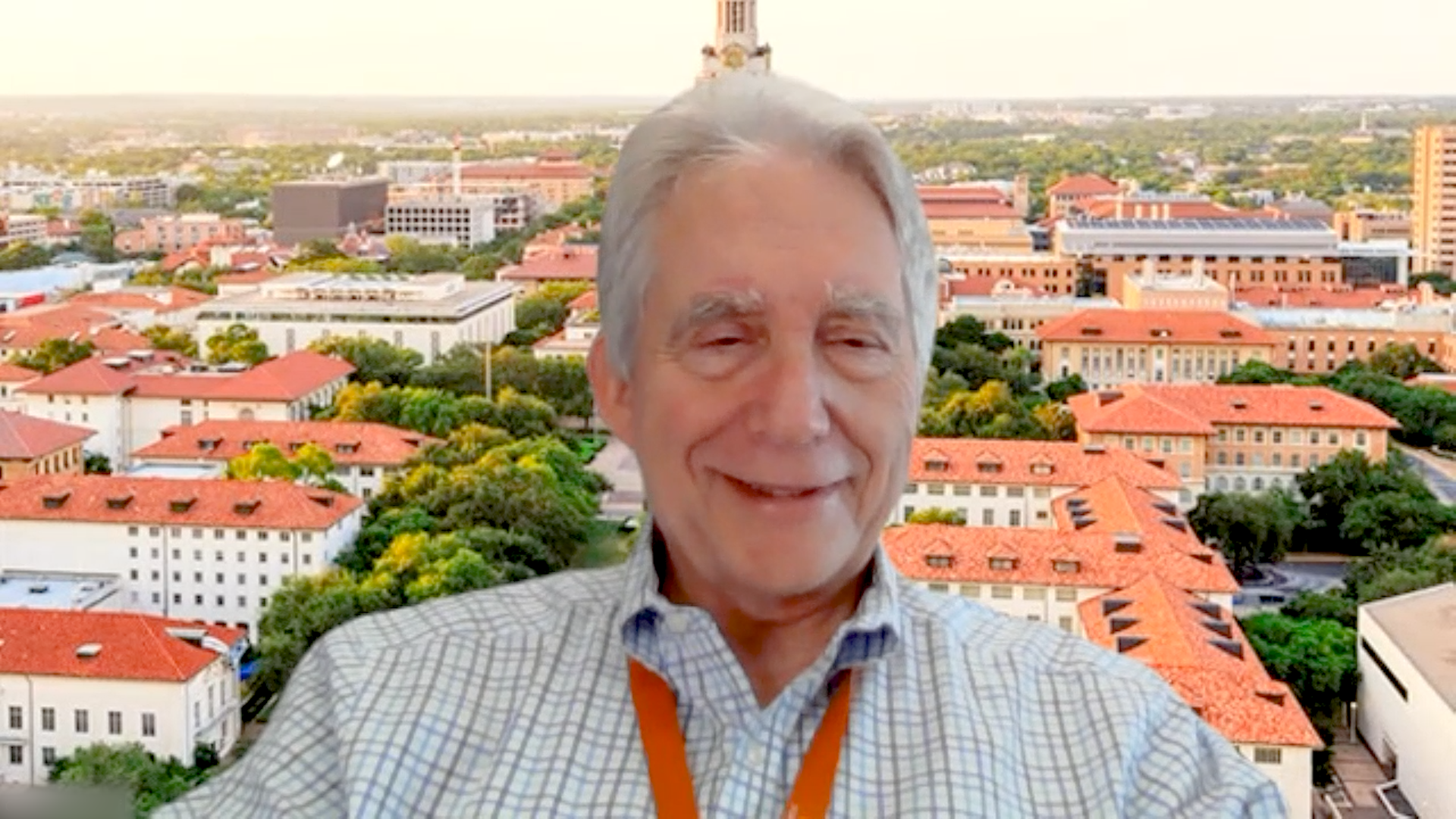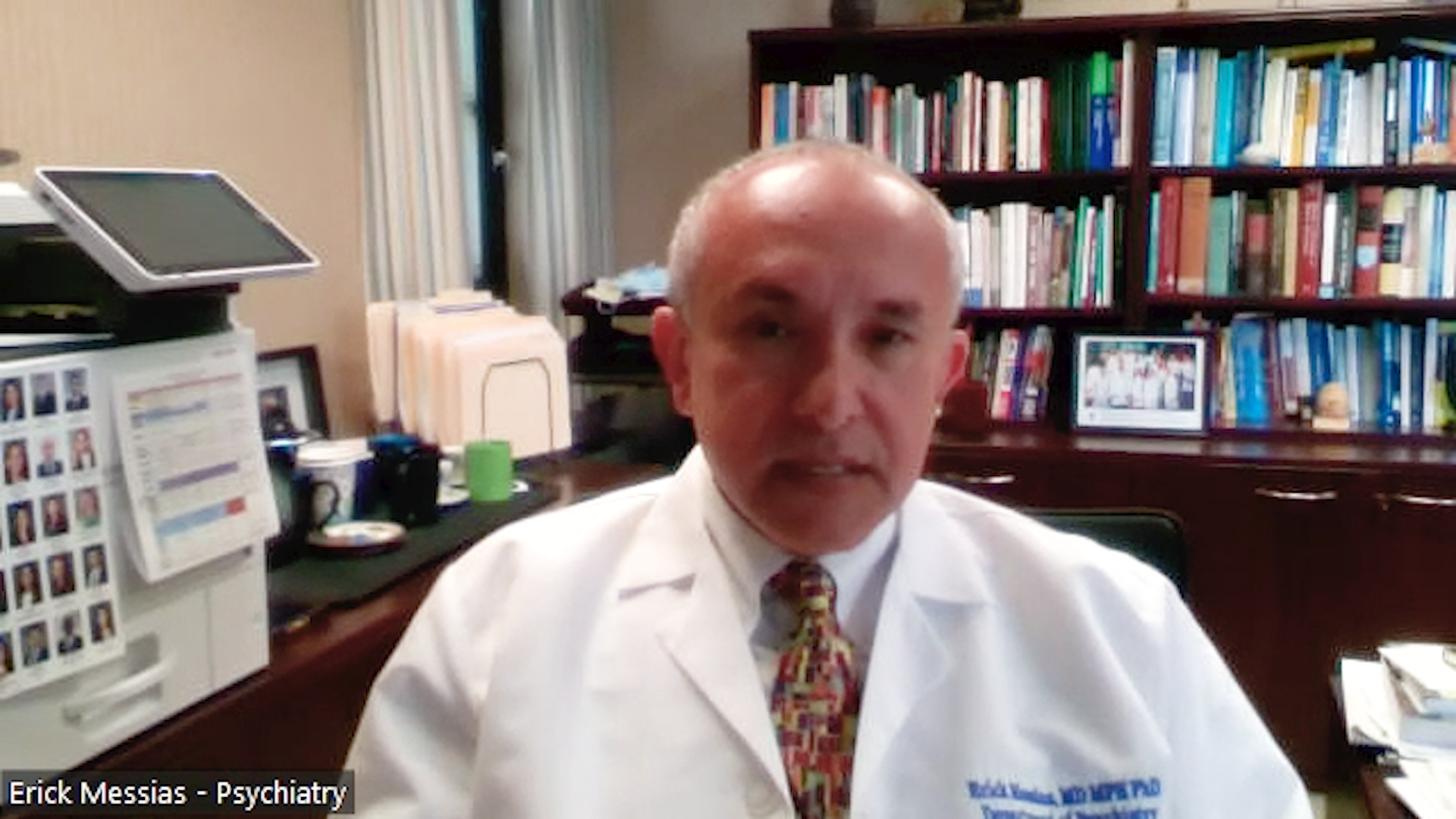Treatment algorithm for managing treatment-resistant depression: Charles Nemeroff, APA 2023
Guidance following the failure of monotherapy when treating depression is limited, as such clinicians usually take a trial and error approach to treatment, a treatment algorithm could help personalise patient care and achieve improved outcomes. It was a pleasure to talk with Dr. Charles Nemeroff (The University of Texas at Austin, Dell Medical School, Austin, TX, USA) to discuss the treatment algorithm which navigates the management of treatment-resistant depression, and major depression.
The abstract entitled ‘Current and Future Treatment of Depression: Glass Half Full or Half Empty?’ was presented at the American Psychiatric Association, 20-24 May 2023, San Francisco, CA, USA.
Questions:
- Can you provide an overview of the current treatment algorithm for managing treatment-resistant depression, and major depression? (0:25)
Disclosures: Charles Nemeroff discloses consulting for Intracellular Therapies, Sage Therapeutics, ANeuroTech, Silo Pharma, Relmada Therapeutics, Engrail Therapeutics, EmbarkNeuro, GoodCap Pharmaceuticals Inc., Senseye Inc., Pasithea Therapeutics Corp., SynapseBio Inc., BioXCel Therapeutics, Clexio Biosciences Ltd., Ninnion LLLC., Heading Health LLC. and MAPS Public Benefit Corporation; serving on advisory boards for ANeuroTech (division of Anima BV), Brain and Behavior Research Foundation (BBRF), Anxiety and Depression Association of America (ADAA), Skyland Trail, Signant Health, Laureate Institute for Brain Research (LIBR), Inc., Heading Health, Pasithea Therapeutic Corp. and Sage; and having major stock/ shares in Seattle Genetics, Antares, Inc., Corcept Therapeutics Pharmaceuticals Company, EMA Wellness, Naki Health and Relmada Therapeutics.
Support: Interview and filming supported by Touch Medical Media. Interview conducted by Katey Gabrysch.
Filmed as a highlight of APA 2023
Access more content on psychiatric disorders
Transcript
Can you provide an overview of the current treatment algorithm for managing treatment-resistant depression, and major depression? (00:24)
The CANMAT algorithm, coming out of Canada. There are a number of algorithms that have come out of Europe. There are algorithms, and I’ve been involved in many of these over the last several years, and they’re really a combination of what I would generally call a consensus of experts in the field, which is valuable, but it’s not exactly a scientifically-based meta-analysis of the treatment recommendations because generally we don’t have enough information to do a more sophisticated statistical analysis. So we could quibble about some of the recommendations. For example, you know, where do monoamine oxidase inhibitors fit? Right? They’re the oldest of antidepressants, along with the tricyclic antidepressants, and after failure with an SSRI or an SNRI, you have a decision to make whether you’re going to switch or augment. Right? Well, no one’s ever done the study that asked the question “Should we just treat someone with an MAOI at this point? Or should we add an atypical antipsychotic or lithium or thyroid hormone?”. This was partly approached in the STAR*D study but not with sufficient power. So consensus conferences are of interest, and, you know, key opinion leaders’ opinions are of interest, but I think they’re only guidelines and the bane of our existence in psychiatry is we still don’t have predictive markers of treatment response and we thought that pharmacogenomics might provide that and it doesn’t. The data is overwhelmingly negative about the commercially available pharmacogenomics platforms. So in the absence of that, with a patient sitting in my office who has failed an SSRI, I might think I know what the best treatment is, but the truth is that’s my belief. It’s not data drift.
Subtitles and transcript are autogenerated

